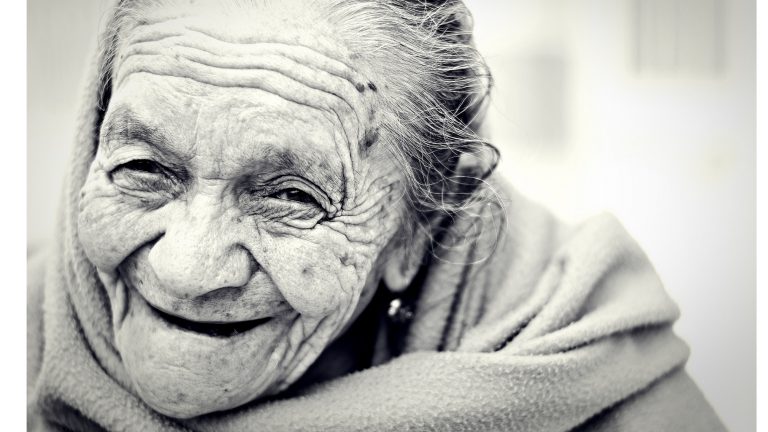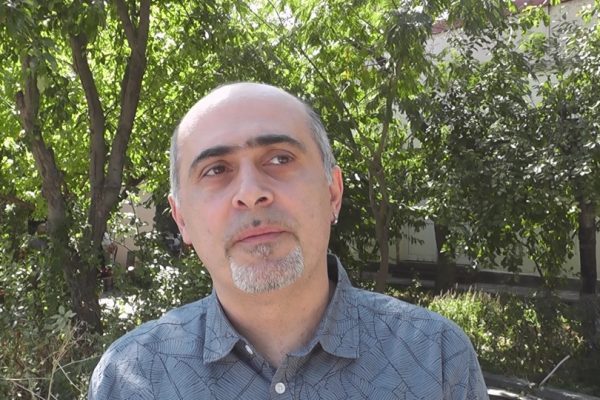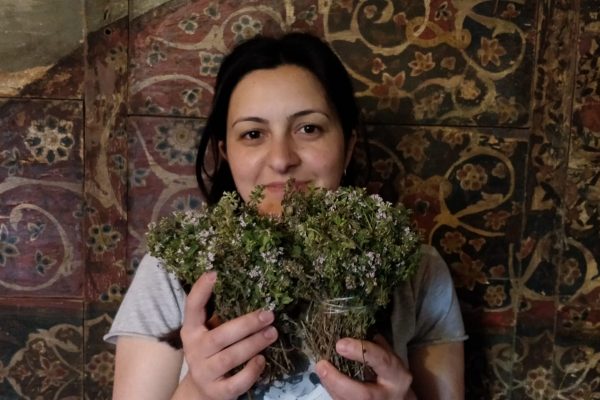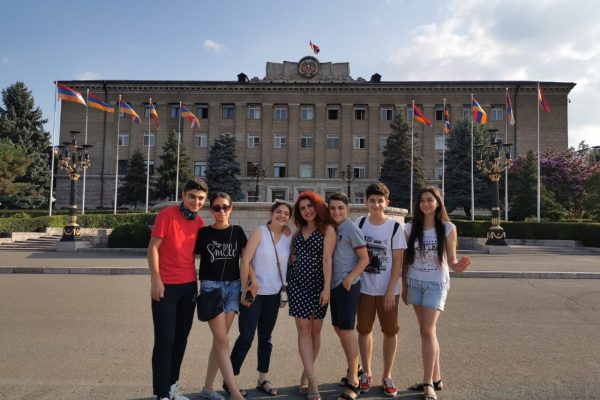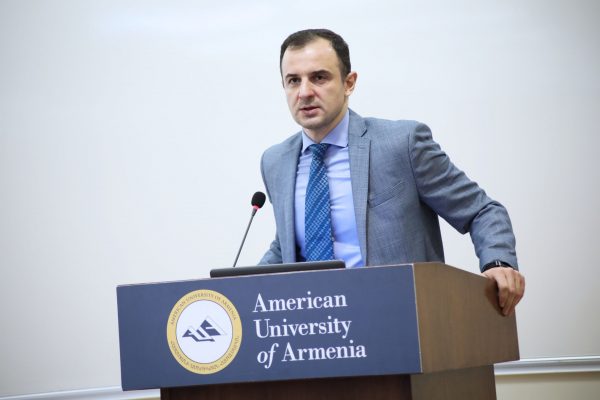Stepanakert. Summer. It is hot. I am waiting for a bus. I see a woman coming to the bus stop with heavy bags in hands. She asks how long she should wait for the next bus to come. I answer that this bus arrives every 20 minutes.
She looks tired, her face sunburnt and hands coarsened. She puts the bags down. She looks at me as if she would like to ask one more question, but does not know about what. I help her:
– You are so tired, are you coming from far away?
She draws a sigh, smiles and starts to tell her story.
Coming from Stepanakert, she and her husband spent their lifetime working on the Silk Plant in Karabakh. After the war there was unemployment. They decided to engage in agriculture. Since then they live in almost a deserted village; they have taken a piece of land and cultivate everything which one can grow. Two sons, both of them soldiers.
They are always at their posts, and almost never visit their home. The children of one of them are little yet, and the wife cannot work. And the other’s wife is ill, it is several years that she has undergone treatment, and the treatment costs a lot of money. Though their children are elder, they still need to be looked after.
How can you do everything?! Now it is the harvest season: one should weed, water and harvest. The old man hardly manages to do all this on his own, he is not a young man you see. He is over 70, and she is under 70.
I shoot a look at the bags. How many such bags should this elderly woman take for the two families?!
– But your sons probably come home for a stay, they also can help you sometimes.
The woman rushes to answer even not letting me finish my question:
– Of course, they do help! But you know where they are, how difficult it is for them. They come home for a couple of days, and they have household chores, in addition, they also have to spend some time with their children and wives. I do not know why I am telling you this, you know all well.
The bus comes. We go on talking, rather she is talking and I am listening to her. She gets off earlier than me, and stretching out her hand to the driver to pay, tells me: “I paid for you too. Thank you very much.” I even do not have time to resist. She pats me on my shoulders motherly, and gets off the bus hardly dragging heavy bags.
I am thinking why this woman has paid for me and thinking rather about whether there is a monument to parents somewhere in the world. Not a memorial, but the very real monument.
Author – Zhanna Krikorova, Head of “Brodyachaya sobaka” Theatrical Group
The post is part of a project on Engaging society and decision-makers in dialogue for peace over the Nagorno-Karabakh conflict implemented by the Caucasus Institute and funded by the UK Government’s Conflict, Stability and Security Fund. The opinions and statements that are made in the publication may not coincide with the official position of the UK Government.

